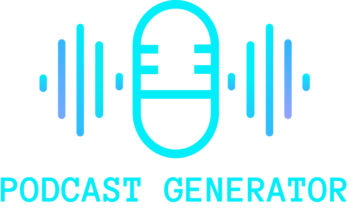Podcasting can be incredibly rewarding, but it also requires careful consideration and planning. If you’re thinking about starting a podcast, there are ten crucial things you need to think about before hitting that record button. In this article, we will explore these essential considerations to help you lay a strong foundation for your podcasting journey.
1. Do You Actually Have Time for This?
Launching a podcast requires a significant time commitment. On average, a simple interview or chat-style podcast episode can take between five and ten hours to produce, excluding promotional activities. It’s essential to gauge your available time and consider how other podcasters manage their schedules. Understanding the time commitment will help you plan effectively and set realistic expectations.
2. Who is Your Audience?
One of the most common mistakes made by podcasters is failing to define their target audience. Knowing who you are talking to is crucial to effectively reach your listeners. Attempting to appeal to everyone may result in connecting with no one. Take the time to define your target audience and be as specific as possible. Consider their interests, preferences, age range, location, and other relevant demographics.
3. Why Should Your Audience Care to Listen?
To attract and retain listeners, your podcast must offer a compelling topic, theme, or consistent value proposition. Identify the unique aspects of your content that will engage your audience and make them want to tune in regularly.
4. What Podcast Format Works Best for You?
Determine the podcast format that aligns with your content and style. You can choose from solo episodes, co-hosted shows, or interviews with guests. Each format offers different advantages and challenges, so select the one that best suits your goals and preferences.
5. Do You Have the Right Equipment?
While you can start with basic recording tools like a phone, investing in essential equipment can significantly improve your audio quality. Consider acquiring a microphone, microphone stand, plug-in headphones, and ensure you have access to a quiet recording space.
6. How Often Will You Release New Episodes?
Decide on a release schedule that works for you and resonates with your audience. Whether it’s a weekly, biweekly, or monthly release, consistency is key. Set realistic goals that you can maintain without compromising the quality of your content.
7. Who Will Edit Your Podcast?
If you’re not proficient in sound engineering, collaborating with someone knowledgeable in audio techniques is vital. A skilled editor can enhance the overall quality of your podcast, ensuring a polished and professional end product.
8 .What Happens After You Complete the Episodes?
Choosing the right podcast hosting platform is essential to distribute your episodes to various podcast players, such as Apple Podcasts and Spotify. Consider utilizing a reliable hosting service like RSS.com, which simplifies the process and allows you to reach a wider audience easily.
9. How Will You Promote Your Podcast Episodes?
Publishing your podcast is only the first step; promoting your podcast it is equally important. Develop a well-defined promotion strategy that utilizes social media, blog posts, newsletters, publishing your episodes on YouTube, or even traditional advertising methods like billboards to reach new listeners and grow your audience.
10. How Will You Track Your Metrics?
Monitoring your podcast’s performance is crucial to understanding what resonates with your audience. Keep track of download numbers, completion rates, and other metrics that provide insights into your podcast’s success. RSS.com provides access to podcast analytics, including an overview section on the Audience page, helping you gain valuable insights.
Conclusion
Starting a podcast requires careful planning and consideration of various factors. By thinking through these ten key aspects, you can establish a strong foundation for your podcasting journey. Remember to invest time and effort into defining your audience, selecting the right format, acquiring suitable equipment, and promoting your episodes effectively. With proper preparation, you can create a podcast that engages and resonates with your target audience, ultimately leading to growth and success.https://youtu.be/1whD0zbnwBc
